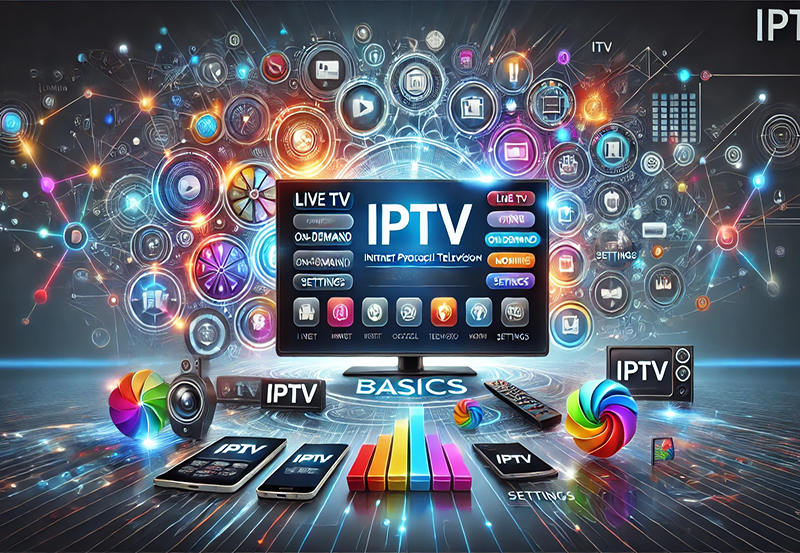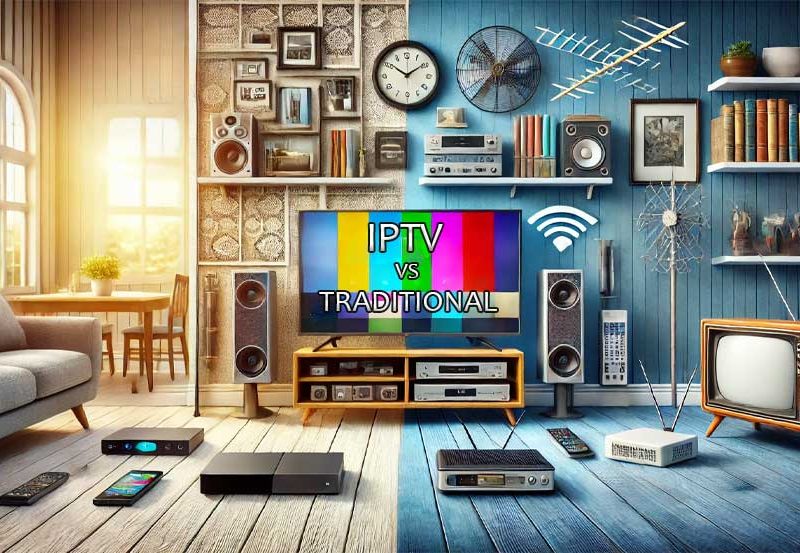The digital era has redefined the way organizations host events and conferences. IPTV (Internet Protocol Television) has emerged as a powerful tool, offering flexibility, scalability, and enhanced engagement for virtual gatherings. By leveraging IPTV, event organizers can deliver high-quality, interactive experiences to audiences across the globe. This article explores the benefits of using IPTV for virtual events and conferences and provides practical steps for successful implementation.
Buy 1 Year IPTV and Enjoy Unlimited Content
1. Why Choose IPTV for Virtual Events?
IPTV offers several advantages over traditional streaming platforms:
- High-Quality Streaming: Supports HD and 4K video for a professional viewing experience.
- Scalability: Accommodates audiences of any size without compromising quality.
- Interactive Features: Includes chat options, live polls, Q&A sessions, and audience feedback tools.
- Cost-Effective: Reduces logistical expenses by eliminating physical venues and travel requirements.
2. Types of Virtual Events Supported by IPTV
IPTV can be tailored for a variety of events:
- Business Conferences: Share keynote speeches, breakout sessions, and panel discussions with global participants.
- Webinars: Deliver educational content and training sessions to remote learners.
- Product Launches: Showcase new products with live demonstrations and audience interactions.
- Entertainment Events: Stream live performances, concerts, or film screenings to engaged audiences.
3. Setting Up IPTV for Virtual Events
Step 1: Select an IPTV Service Provider
Choose a provider that specializes in virtual event solutions. Key features to look for include:
- High-definition streaming capabilities.
- Multi-device compatibility (smart TVs, laptops, mobile phones).
- Integrated tools for audience interaction.
Step 2: Choose the Right IPTV Platform
Popular IPTV platforms for events include:
- IPTV Smarters Pro: Ideal for businesses seeking a professional interface.
- Vimeo OTT: Perfect for customizable streaming experiences.
- Twitch or YouTube Live: Options for entertainment-focused events.
Step 3: Configure the Streaming Setup
Ensure your setup is optimized for seamless delivery:
- High-Speed Internet Connection: A stable connection is essential for uninterrupted streaming.
- Encoder Software or Hardware: Use encoders to convert video files into IPTV-compatible formats.
- Content Delivery Network (CDN): A CDN ensures smooth streaming by distributing content across multiple servers.
4. Enhancing Audience Engagement
Engagement is key to the success of virtual events. IPTV supports several features to boost interaction:
- Real-Time Chat: Allow attendees to communicate, ask questions, and share feedback.
- Interactive Polls: Conduct live polls to gather audience opinions.
- Breakout Sessions: Organize smaller, focused discussions to cater to specific interests.
- Custom Branding: Incorporate logos, colors, and themes that align with your organization’s identity.
Best IPTV Solutions for Multi-Room Streaming
5. Monetizing Virtual Events
IPTV platforms offer monetization options to maximize revenue:
- Pay-Per-View: Charge attendees for access to live events or premium content.
- Subscription Models: Offer recurring access to exclusive conferences or series.
- Sponsored Content: Collaborate with brands to feature ads or promotional materials.
6. Ensuring Accessibility
IPTV can make virtual events more inclusive:
- Multilingual Support: Provide subtitles or multiple audio tracks to cater to diverse audiences.
- On-Demand Content: Allow attendees to watch sessions they missed at their convenience.
- Screen Reader Compatibility: Ensure the platform is accessible for visually impaired participants.
7. Troubleshooting Common Issues
Even the best setups can face challenges. Here’s how to address common problems:
- Buffering or Lag: Optimize your internet speed and reduce network congestion.
- Audio-Visual Sync Issues: Test equipment beforehand to ensure smooth integration.
- Technical Difficulties: Have a dedicated tech team on standby for quick resolutions.
8. Measuring Success with Analytics
IPTV platforms often include analytics tools to track event performance:
- Viewer Metrics: Monitor attendee numbers, engagement levels, and drop-off rates.
- Interactive Stats: Analyze poll responses, chat activity, and Q&A participation.
- Feedback Collection: Use post-event surveys to gather insights for improvement.
9. Future Trends in IPTV for Virtual Events
The integration of new technologies will continue to enhance IPTV’s role in virtual events:
- Virtual Reality (VR): Create immersive experiences with VR-compatible IPTV solutions.
- Artificial Intelligence (AI): Use AI to personalize content recommendations and enhance audience engagement.
- Hybrid Events: Combine in-person and virtual elements for broader reach and flexibility.
10. Conclusion
IPTV is transforming the way virtual events and conferences are hosted, offering unparalleled flexibility, scalability, and engagement. By selecting the right platform, optimizing your setup, and incorporating interactive features, you can create impactful and memorable virtual experiences. Whether you’re organizing a global business conference or a niche webinar, IPTV ensures your content reaches audiences with exceptional quality and efficiency.
Transitioning from Cable to IPTV Smoothly and Easily




